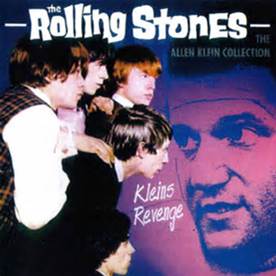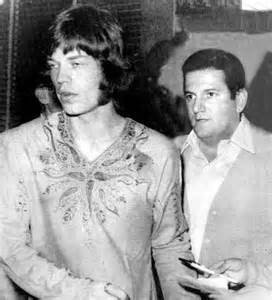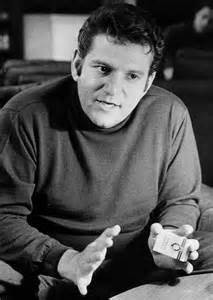The Legendary Battle Between the Rolling Stones and Their Notorious Manager, Allen Klein
Amazingly, The Beatles Became Klein’s Second Helping
By Andrew Goutman
(February 24, 2015) After countless lawsuits, verdicts and settlements (26 in all counting the Beatles), as each party licked its wounds and counted casualties in terms of lost property, wasted time and treasure, perhaps it was the Stones’ guitarist Keith Richards who summed up the battle best: it was “the price of an education.”
And a severe price it was for the Rolling Stones.
Allen Klein, the wheeler-dealer record company nemesis who managed the Rolling Stones during the years 1965-70, would retain ownership of the band’s entire recorded music catalogue during those years. In return, the Stones would receive millions in royalties money that was rightfully theirs in the first place. Additionally, the Stones would be obligated to release one album of new material under Allen Klein’s thumb.
After an initial settlement in 1975 freed up for the Stones $1 million in royalties that Klein had purposely tied up in litigation, Mick Jagger told Rolling Stone:
It was for songwriting royalties that he owed Keith and me from 1965 onward. I wasn’t particularly happy about [surrendering ownership of the original songs]. I just wanted to get rid of him. He’s just living off us and what we did five, ten years ago, you know? It’s pretty pathetic.
Who Is This Allen Klein?
Allen Klein’s ruthlessness emerged early in his career, when he reportedly stood up for artists working for Roulette, “a label owned by Mafia-connected Morris Levy. In 1963 he negotiated a lucrative deal for the legendary R&B performer Sam Cooke. Four years later, Klein purchased a controlling interest in Cameo-Parkway, the Philadelphia label that was home to Chubby Checker and other legendary performers. Klein’s star was on the rise. He became known among musicians as the go-to guy when big money was at stake, “the biggest bastard in the valley.”
Meanwhile, the Rolling Stones were unhappy with their contract with Decca, the band’s label, and dispatched Klein to renegotiate terms. Klein secured a huge advanced payment on royalties, but he could provide no simple explanation when caught “depositing the 1.7 million pounds into his account in the US rather than the Stones’ account in the UK.”
Tax issues always haunted the Rolling Stones. Klein was charged with shielding the band’s earnings through its US-based publishing company, Nanker Phelge. Klein employed small-print trickery to gain control of Nanker Phelge as its “nominal owner.”
The implications were huge: By owning the publishing company, Klein owned the rights to all Stones recordings during that period. Klein’s estate (he died in 2009) still retains ownership. Jagger: “They have the rights to repackage all our old material between 1963 and 1969.”
It was 46 years ago this month (the date was February 3, 1969) when the Beatles hired Allen Klein to be the band’s manager. The Beatles’ fledgling Apple Corps was “bleeding money.” The man hired to replace deceased manager Brian Epstein, Brian’s brother Clive, seemed to prefer to run the family’s furniture business.
The date is important because it partially explains why the Beatles, and John Lennon in particular, would hire a man in the midst of ripping off their cross-town competitor. It was just too soon to know the extent of Klein’s malfeasance.
Only Paul McCartney objected, and that was mainly because Paul favored Lee Eastman to run the Beatles’ affairs, a man who would soon be Paul’s father-in-law. “I asked Mick Jagger when he came around,” remembered Paul. “He said it was okay if ‘you like that kind of thing.’ He didn’t really warn us off.”
George Harrison’s take on Klein was particularly illuminating: “Because we were from Liverpool, we favored people who were street people. Lee Eastman was more like a class-conscious sort of person. As John was going with Klein, it was much easier if we went with him too.
For the story of the Beatles’ experience with Allen Klein, please read my article titled “JT’s Bite of the Apple.” JT is of course James Taylor, an artist with Apple Records until Allen Klein showed him the door.


















































































































